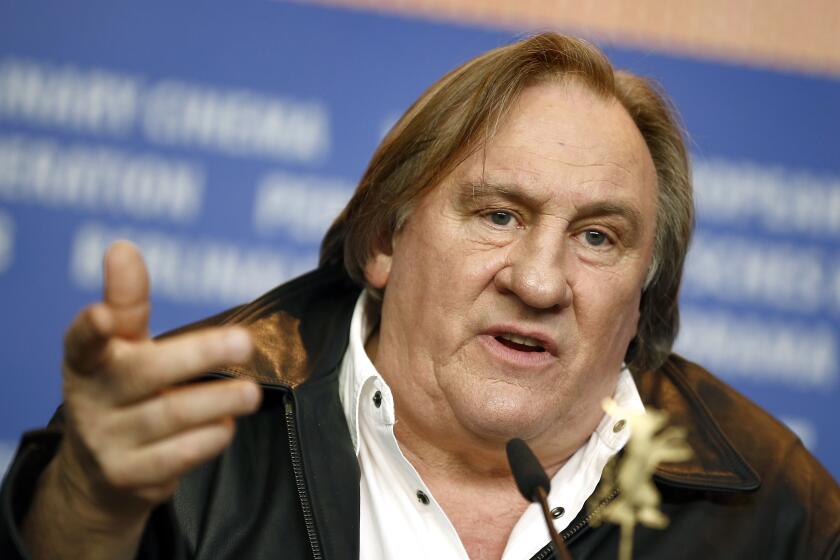Paraguay’s New Press Freedom Lauded
A gathering this week of news executives from the Americas, planned as a confrontation with Paraguayan dictator Alfredo Stroessner, instead turned into a celebration of the near-complete return of press freedom since Stroessner’s ouster.
The Inter American Press Assn. declared, however, that the killings of 17 journalists in Latin America in the last year and continued repression of the media in many countries offset the region’s few advances toward free expression.
The association had deliberately chosen Paraguay for its spring meeting as a challenge to Stroessner, who muzzled opposition politicians and media after he took power in a coup in 1954. His right-hand man, Gen. Andres Rodriguez, overthrew Stroessner in a bloody coup on Feb. 3, and immediately pledged a resumption of press freedom.
Rodriguez permitted the reopening of ABC Color, Paraguay’s largest newspaper, which was closed by Stroessner in 1984, along with the small weekly El Pueblo and the influential Radio Nanduti. That fulfilled part of Rodriguez’s pledge to foster a transformation to authentic democratic rule for the first time since the nation became independent from Spain.
Steps Applauded
While some analysts remain skeptical that a man who served Stroessner loyally for years can suddenly become a champion of democracy, some of the previous government’s harshest critics applaud his steps so far.
The press organization noted in the final report of its meeting: “In Paraguay, a once-steady stream of human rights violations and press crackdowns has ended, with some few exceptions. . . . The arrests, beatings and torture of journalists and others seen as a threat to the government have ceased.”
Aldo Zuccolillo, the owner of ABC Color who had crusaded against Stroessner for years, resumed publication of his newspaper March 22, the fifth anniversary of its closure. The paper sold out 80,000 copies the first day, not far below its previous circulation, and is selling more than 50,000 copies daily now. Zuccolillo has hurriedly assembled a work force of 350, including 80 journalists, in a newly computerized newsroom.
“I feel like a 6-year-old who was taken to Disney World,” Zuccolillo said in an interview at the paper.
The press association also reported advances in press freedom in Chile, since Gen. Augusto Pinochet lost a plebiscite in October on his quest for another eight-year term as president. Pinochet, who took power in a coup in 1973, will step down next March after elections in December to choose his successor.
Since the plebiscite, “the communications media has been able to perceive an appreciable improvement in the conditions under which it undertakes its activities and carries out its commitment in an atmosphere of increasing freedom,” a report on Chile said. But it added that cases are pending in military courts against 21 journalists, mostly for offending the military.
After years of violence and repression against the press, Guatemala also has dramatically expanded press freedom, although some harassment persists, the study said.
Elsewhere in the region, however, violence against reporters and infringements of press freedom have not abated, the study added.
In Colombia alone, 23 journalists have been killed in the last five years--the most recent, El Espectador columnist Hector Giraldo Galvez, on March 29. “These cases reflect the climate of intimidation in which journalists operate, caught between violence from three groups--Marxist guerrillas, paramilitary groups and drug traffickers,” the report on Colombia added.
Two reporters were killed in Brazil, three in Peru, two in Mexico--where 31 journalists have died in six years--and three more in El Salvador during the March elections, the report said.
In Panama, Gen. Manuel A. Noriega maintains a stranglehold on the press, the report added, with four newspapers and several radio stations closed down. Nicaragua, the report said, is still harassing La Prensa, the nation’s only independent newspaper, and a license for an independent television station has been denied.
The Cuban government released two journalists from political prison after terms of up to 26 years, but nine more journalists were arrested for publishing underground journals.
The study noted that the economic problems overwhelming many Latin American countries have pushed up the price of newspapers, putting them out of the reach of many workers and raising “a danger that the popular press of Latin America will become elitist.”
More to Read
Start your day right
Sign up for Essential California for news, features and recommendations from the L.A. Times and beyond in your inbox six days a week.
You may occasionally receive promotional content from the Los Angeles Times.






